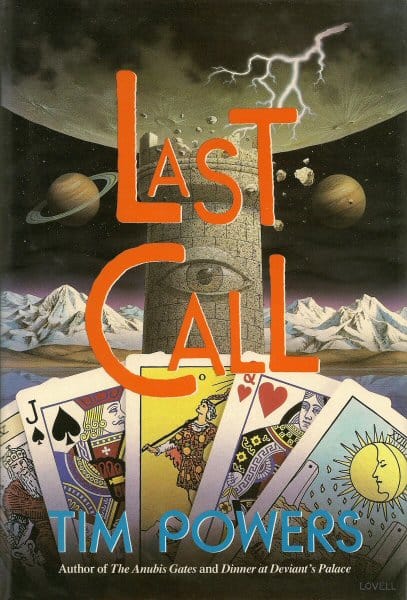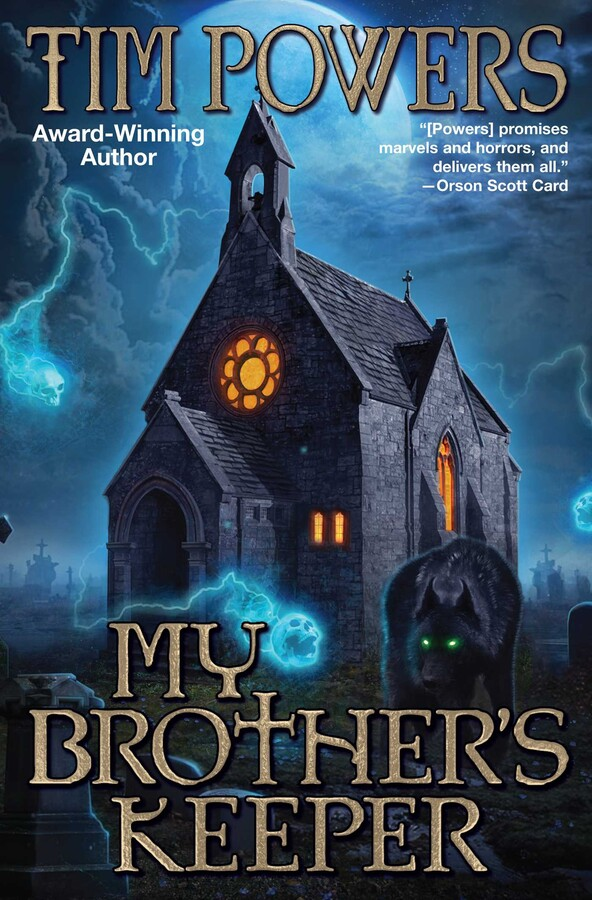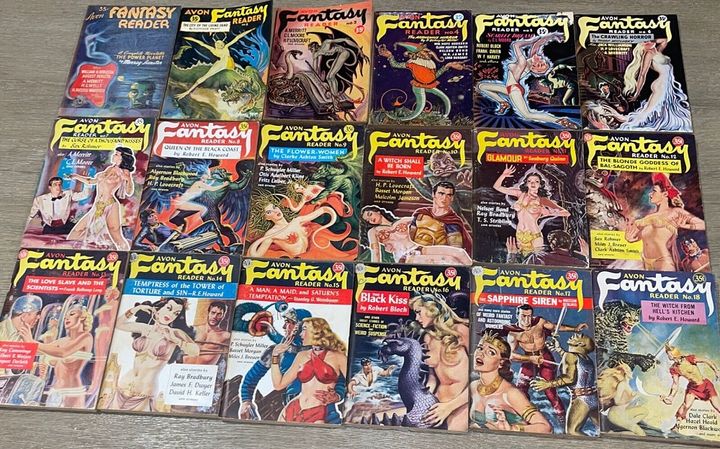Last Call Book Review


Last Call
by Tim Powers
Perennial 2003
$15.95; 535 pages
ISBN 038072846X
Last Call [Amazon link] is one of my all time favorite books. I can return to this book again and again, and find something different in it each time. According to LibraryThing, the last time I read this book was in May of 2011, almost exactly six years ago. Which probably explains why I find the father/son relationships of the book so gripping now.
But I get ahead of myself. Tim Powers is a long time favorite author, and this was one of the first books of his I ever read. I am amazed that I persisted, because on first read, the book is bizarre. Who is the Fisher King? Why does Bugsy Siegel feature so prominently? Why does everyone keep quoting T. S. Eliot? What about the fractals and chaos theory? How does this all fit in with poker?
That very first reading, I was very, very confused. But I was also deeply intrigued. I immediately read the book again, and I tried to put the pieces together into a coherent whole. I didn't get there, but I started looking into the mythology of the Fisher King, and the historical events referenced in the book. I learned about the history of playing cards, and how they related to the Tarot. I tried to read The Waste Land by T. S. Eliot [Amazon link].
That last proved too dense and esoteric even for me. But I persisted. Last Call is the first book of a trilogy by Tim Powers, and reading the other two books did actually help fill some of what is going on, but I think Last Call is by far the best of the three. I got quite a bit of help from the collected works of John J. Reilly, who while not a Tim Powers fan, was conversant with Jung, comparative mythology, and the Fisher King.
I learned that all of the things about Bugsy Siegel actually happened. When I first read Last Call, I wasn't familiar with Powers' secret history style of writing, but his fastidious research paid off in hooking me forever. I learned about the Arthurian legend of the wounded King who ate nothing but fish and represented the health of the land and its people, and how this figures into the legitimacy of the Emperor who rules the Earth. I learned of the way in which the Tarot cards had morphed into the playing cards we use today. Finally I understood why early Protestants were so opposed to card games. I was intrigued by the sacramental imagination of Powers, who made the Eucharist real to me.
Last Call is part of the reason I mostly read fiction. Many people otherwise like me mostly read non-fiction, but I find that I learn the most about the world from fiction. This is probably a function of the kind of fiction I read. And probably the kind of person I am. Last Call is also the reason I deeply distrust Tarot cards, and all forms of fortune-telling and gambling. It just isn't worth the risk.
Also, Las Vegas will never, ever be the same to me after reading this book. I've never really been the kind of person who enjoyed the spectacle and excess of Vegas, but now that I've seen Las Vegas as the fortress of a bad King and a shrine and sacrifice to the gods of chaos and randomness, I really don't like it. Which is unfair to the people who work and live there, but what has been read cannot now be un-read.

Returning to where I started, this time through the aspect of the book that was foremost in my mind was Scott Crane and his fathers, both real and adoptive. Fatherhood: real, adoptive, and mystical, is central to Last Call. The King is in a sense a father to us all, and thus the character of the King matters in the same manner as a father's does. Powers sets this up in the prologue, where we meet five-year-old Scott on a fun outing with his real father. They eat breakfast at the Flamingo, and flatten pennies on the railroad tracks. Scott worships his father, as most five-year-olds do.

Then we learn exactly what Georges is willing to do for power. What he has already done to Scott's older brother Richard. For just a moment, Georges finds his resolve wavering. To his own surprise, he actually loves his son. But he sets his face against his weakness, and proceeds.
Only the rebellion of Georges' wife saves Scott before Leon can consummate the ritual. Which Georges should have seen coming, because his life is an archetype. Scott is thus set up to displace his father in a re-enactment of mythology. The epilogue is a refrain of the prologue, and very bittersweet.
Sci-fi or fantasy novels that have mythological themes are not difficult to find. What makes Last Call remarkable is Powers' ability to make Georges Leon and Scott Crane seem like real people, while still instantiating a type. They seem real to me, rather than characters in a book. Each one, their loves and loss and failings, is like a person. That human verisimilitude is what balances out the craziness of a world where Tarot cards can kill you.
Powers has a fierce love of particular places, specifically Los Angeles and the areas nearby. Since I live across the Mojave desert from LA, and I have family there, I have driven across the Mojave more times than I would like to.
The highway was a straight line in the twilight, a tenuous line between the dark horizon so far ahead and the red horizon so far behind. The old Suburban barreled along steadily, squeaking and rocking but showing low temperature and a full tank of gas in the green radiance of its gauges. On either side of the highway the desert was pale sand, studded as far as the eye could see with widely spaced low markers that looked like, but couldn't have been, sprinkler heads.
This is exactly what the inhuman vastnesses of the Mojave feel like. I've been to LA and Vegas often enough to validate Powers' descriptions of them. Suspension of disbelief is a lot easier when you've been to all of the places in a book and find the descriptions spot-on. I imagine Tim and his wife Serena taking trips on the I-15 to get it just right.
I am a bit late this year, but I may make this a regular feature of my celebration of Easter. Much like Tolkien, and more inventively than Blish, Holy Week, the week of Passover and Easter, is at the center of the chronology of Last Call. This week represents an ending and a beginning, and certain things can only happen during this time. Classical allusions are one thing, but to interleave them with Christian sacraments and eschatology and make it look easy is quite another.
Tim Powers is the only author I know who can do all these things well. And Last Call is one of his best. Read it.
My other book reviews | Reading Log
Other books by Tim Powers


Comments ()